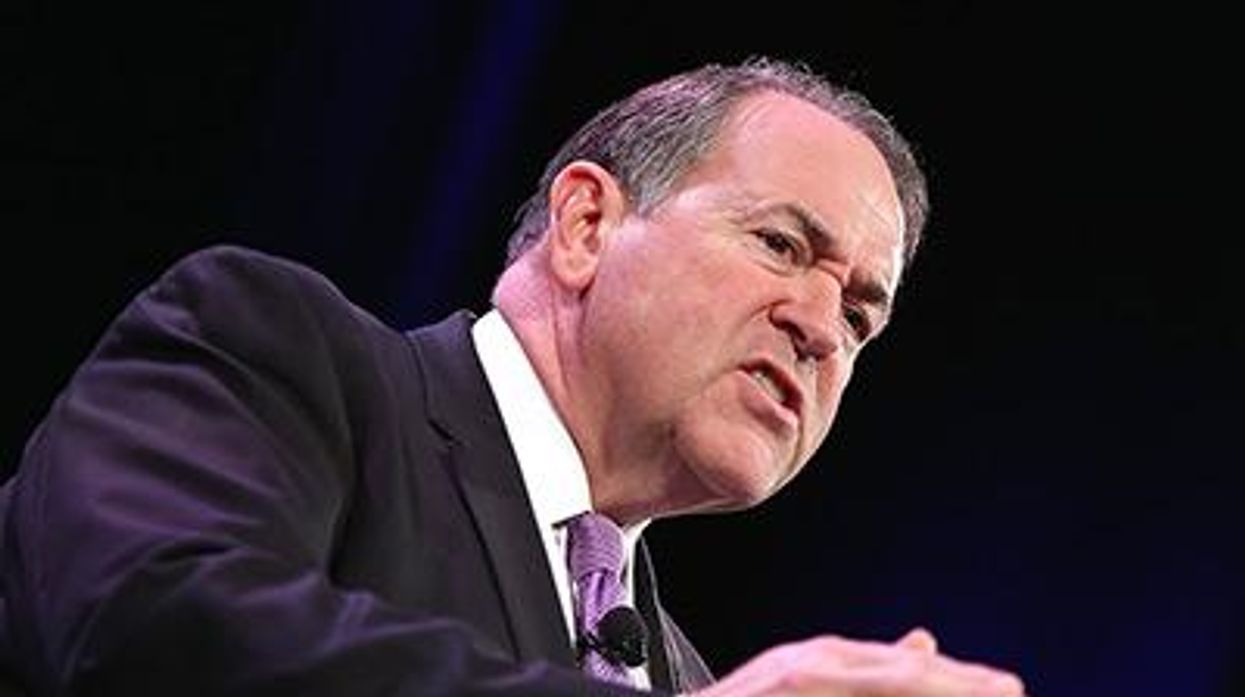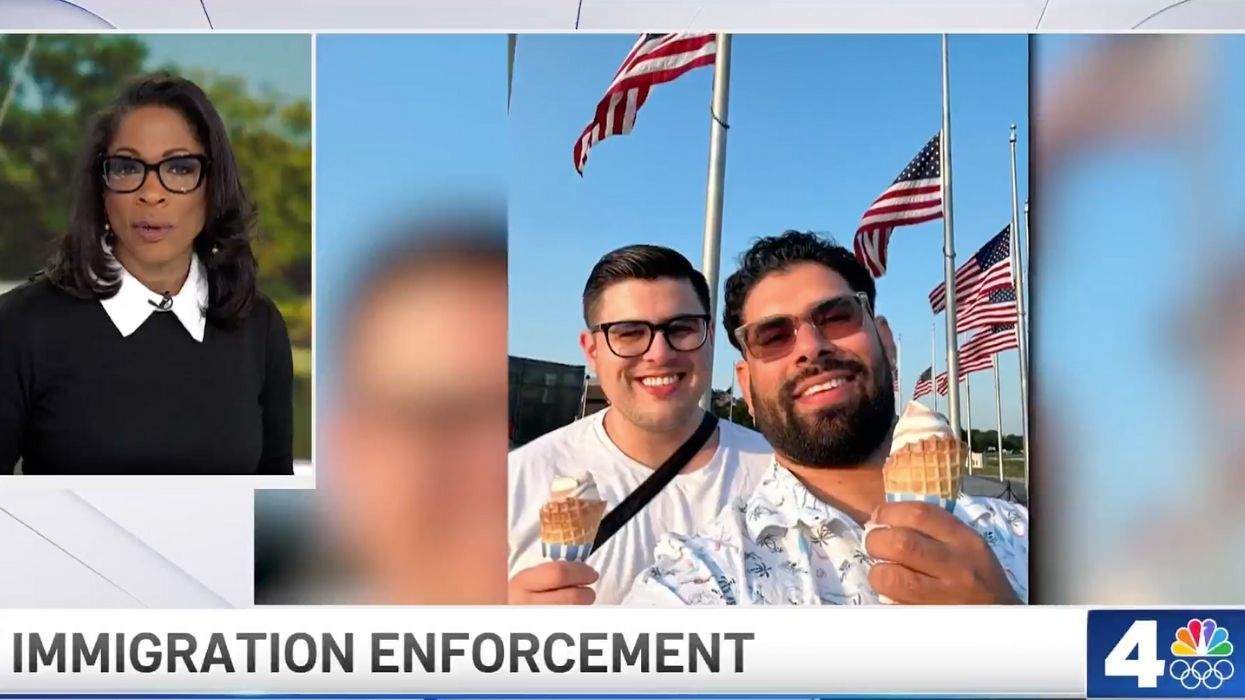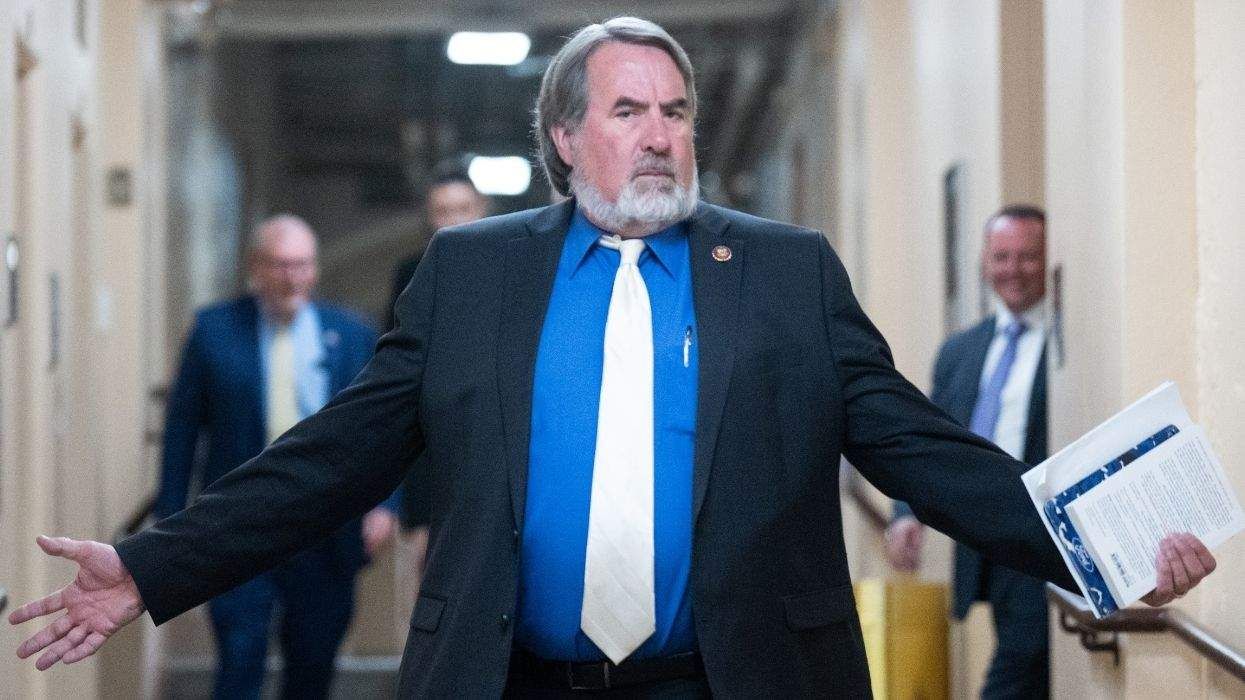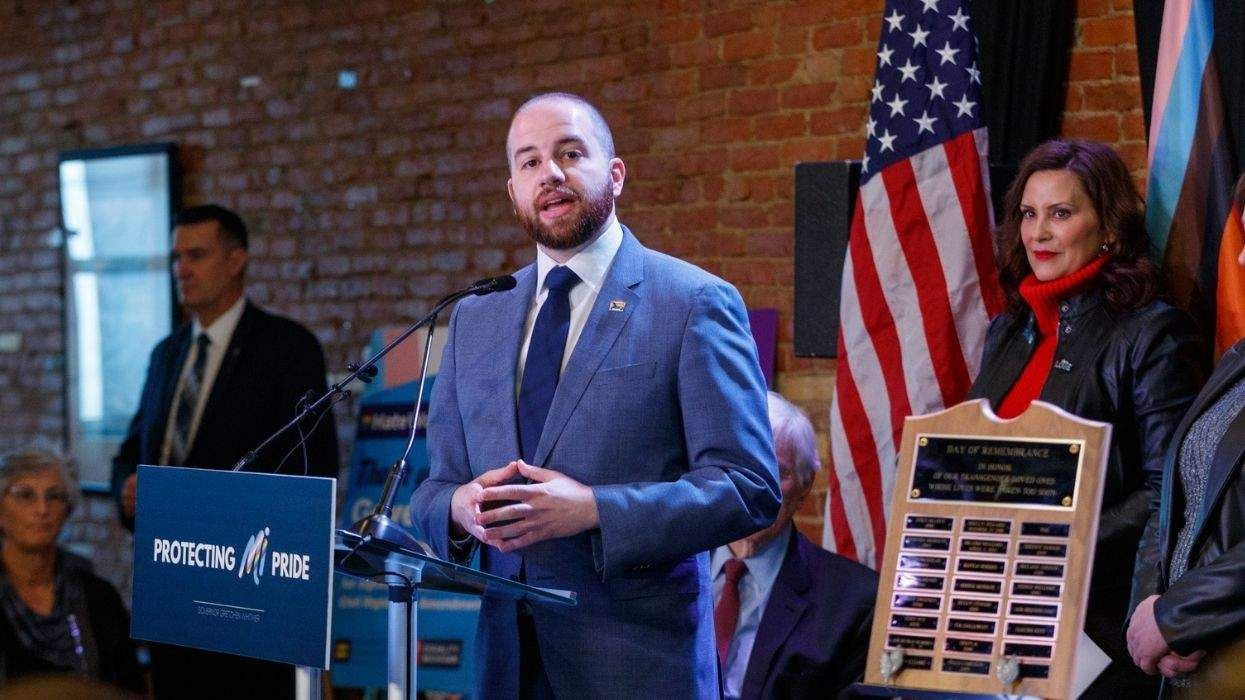Given the convoluted things Mike Huckabee has taken to saying about whether states are bound by rulings of the Supreme Court, people started to wonder if all his talk amounts to a renaissance for "nullification."
Then when confronted this weekend during a Meet the Press interview about whether he supports the segregationist theory, the former Arkansas governor and Fox News host, and likely 2016 presidential hopeful, quickly dismissed nullification -- while still seeming to back some form of it.
The answer is typical of a garbled explanation of American law and history that Huckabee is selling while talking to conservative media.
Huckabee's gone around claiming that states could simply disregard a ruling legalizing same-sex marriage should it come down from the U.S. Supreme Court. "I've heard several governors when their state Supreme Court says that they're going to allow same-sex marriage and the governor just folds and surrenders and says, 'Well, it's the law of the land.' No, it isn't." That's what he said during a radio interview this month with the Family Research Council (which the Southern Poverty Law Center classifies as an antigay "hate group").
"The point is, states would be in a position that their legislatures would have to go into session," Huckabee explained further during a later interview with conservative radio host Hugh Hewitt. "They would have to create legislation that their governor would sign. If they don't, then there is no same-sex marriage in that state." He told Hewitt that if states disagree with the high court, it could lead to a "confrontation." He didn't elaborate on what exactly that would look like.
Then in a newspaper interview, Huckabee attacked the justices as, essentially, gone wild with power. "The founders never intended for there to be such incredible, almost unlimited power, put in the hands of so few people," Huckabee told USA Today in an interview published January 22.
But Huckabee ought to consult Article VI of the U.S. Constitution, which establishes federal law as the supreme law of the land. He might also familiarize himself with the 1803 case Marbury v. Madison, which established the Supreme Court's ability to definitively review state law.
Then again, as one Forbes columnist recently opined, perhaps Huckabee is only a self-described "strict constitutionalist" until the Supreme Court disagrees with him. "It now seems that Huckabee only believes that the judiciary should be the final arbiter or what is or is not constitutional when it suits his personal beliefs -- particularly when it comes to gay marriage," wrote columnist Rick Ungar on Tuesday.
Huckabee expanded on that logic when Meet the Press moderator Chuck Todd asked Huckabee directly if he supports "nullification."
But that didn't stop segregationists from pushing for nullification in the 1950s, in an attempt to stop school integration in the South. The Supreme Court rejected attempts to defy integration orders as "no more than a protest, an escape valve through which the legislators blew off steam to relieve their tensions." Nevertheless, segregationists held out hope that they might simply refuse to allow black students to attend public schools.
Segregationist Alabama governor George Wallace, in his inauguration speech, spoke out against then-recent federal rulings supporting the civil rights of African-Americans: "Let us send this message back to Washington, via the representatives who are here with us today," he said. "From this day, we are standing up, and the heel of tyranny does not fit the neck of an upright man. ... In the name of the greatest people that have ever trod this earth, I draw a line in the dust and toss the gauntlet before the feet of tyranny, and I say, segregation now, segregation tomorrow, and segregation forever."
On Sunday, Huckabee had a hint of Wallace's rebelliousness: "I'm really saying that there is a process to change the law," Huckabee insisted. "And it doesn't just involve one unilateral branch of government." It is true that courts can't unilaterally create new laws. But we all used to agree that the high court can overturn unconstitutional laws, and has done so for more than 200 years. Huckabee seemed to agree with that basic principle but left open room for states to ignore the high court. "The courts can't make a law. They can interpret one, they can invalidate one. But even then..." he said, then adding a caveat, "as in the case of the Dred Scott decision in 1857 that said black people weren't human beings, Abraham Lincoln refused to adhere to that because he said it wasn't a just law."
That 1857 Supreme Court ruling found African-Americans could not be U.S. citizens. It's true that Lincoln vocally opposed the ruling, which came years before he was president. Lincoln even famously gave a speech just months after the ruling condemning it, but he was clear about the proper way to counteract. "We think the Dred Scott decision is erroneous," he said. "We know the court that made it, has often overruled its own decisions, and we shall do what we can to have it to overrule this. We offer no resistance to it."
In fact. Lincoln started his speech by explaining the importance of the high court. "We believe ... in obedience to, and respect for the judicial department of government. We think its decisions on constitutional questions, when fully settled, should control, not only the particular cases decided, but the general policy of the country," said Lincoln. The only way to dispute the Dred Scott ruling, he said, was for the court to change its mind or with an amendment to the Constitution. "More than this would be revolution," he said.
Lincoln's first inaugural address, from 1861, includes a much-discussed passage about the importance of all three branches of government actively playing a role in changing laws, which many took as a complaint about the Dred Scott decision. Lincoln warned that deferring entirely to the Supreme Court would mean "the people will have ceased, to be their own rulers, having, to that extent, practically resigned their government, into the hands of that eminent tribunal."
But did Lincoln refuse to adhere to the court's decision in Dred Scott? Historians say that after becoming president he never issued any directive that the government disobey. Then again, Huckabee might recall that the much larger "confrontation" about this issue did lead to a civil war.















Charlie Kirk DID say stoning gay people was the 'perfect law' — and these other heinous quotes
These are some of his worst comments about LGBTQ+ people made by Charlie Kirk.